Kindness Can Retrain Neural Pathways
Kindness Can Help Retrain Neural Pathways in the Brain
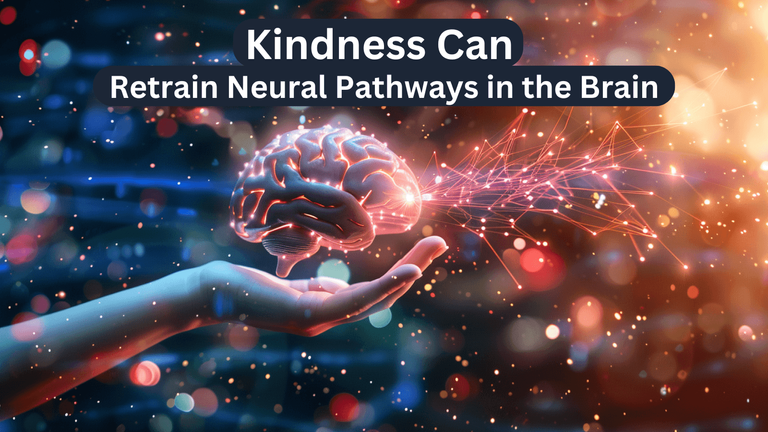
It has been said that kindness is its own reward. But research suggests that there may be another benefit to being kind: it can help to retrain neural pathways in the brain. In a time full of global challenges, kindness gives hope for a better society and personal happiness. Being kind not only feels good and improves relationships but also changes our brains.
What are neural pathways?
Neural pathways are the superhighways of nerve cells that transmit messages between the brain and the rest of the body. Like well-trodden paths through a forest, these routes become more defined with frequent use. Our habits, behaviors, and emotional responses are all influenced by these neural circuits, which are shaped by our experiences. The brain can change and adapt through neuroplasticity.
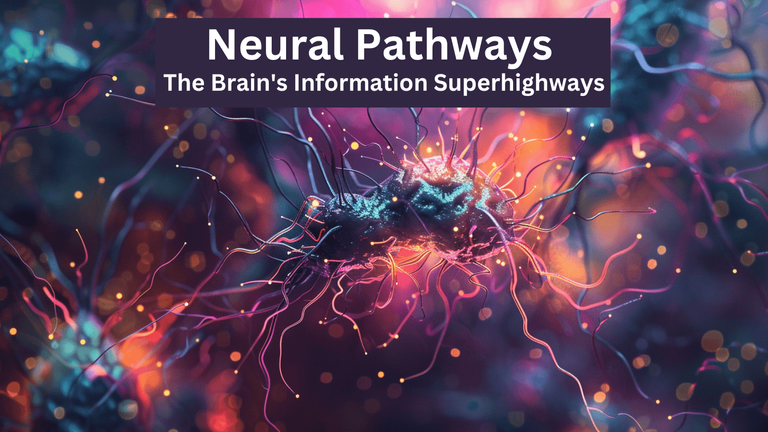
This flexibility means that our brains are not fixed by adulthood but are continually evolving in response to our actions and thoughts. Being kind may not only be rewarding but also help reshape the brain's neural pathways. Studies show that kindness is good for our brains.
Impact of Mindfulness Practice on Brain Structure
Research shows that mindfulness practice can cause changes in the brain. One study found an increase in certain brain areas related to learning, memory, emotions, self-awareness, and empathy after practicing mindfulness. This suggests that training in mindfulness can lead to changes in brain structure, showing that the brain can adapt. The study also shows a connection between mindfulness, brain structure, and well-being.

By practicing mindfulness, certain brain areas associated with well-being and cognitive functions show increased activity. This indicates that mindfulness and compassion practices can have positive effects on the brain's physical structure, promoting overall health and wellness.
Kindness and Brain Rewiring: LKM Study
Being kind, such as through Loving-Kindness Meditation (LKM), can have great benefits for mental and physical health. Research shows that kindness practices can change the brain in positive ways, such as increasing theta power and reducing heart rate. This can improve brain-heart connections and psychological well-being.
Practicing kindness can calm the mind, increase empathy, and foster positivity. Studies suggest that acts of compassion can rewire the brain, leading to better emotional control, empathy, and motivation. Repeatedly generating feelings of love and goodwill can reshape neural pathways. Kindness practices may improve mental health and resilience by influencing brain activities. Overall, being kind can transform brain function and support overall well-being.
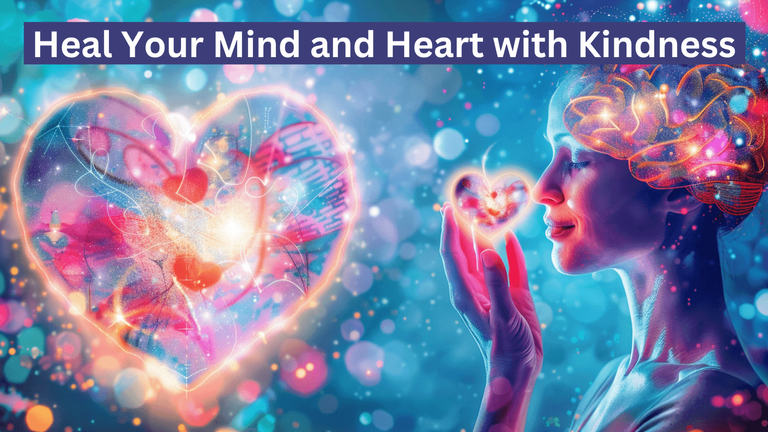
Study Shows Kindness is Good for the Brain
Another study involving Japanese undergraduate students found that happy people reported more positive daily experiences, happy memories related to kindness, and demonstrated higher motivation and behavior linked to kindness. A "counting kindnesses" intervention was conducted, showing that focusing on kind actions increased subjective happiness among participants. Those who became happier also reported more kind behaviors and feelings of gratitude.
These studies emphasize the importance of kindness and gratitude in subjective happiness. They suggest that practicing and recognizing kind deeds can lead to increased happiness and potentially enhance cognitive functions related to memory and learning.
Case Study Highlights
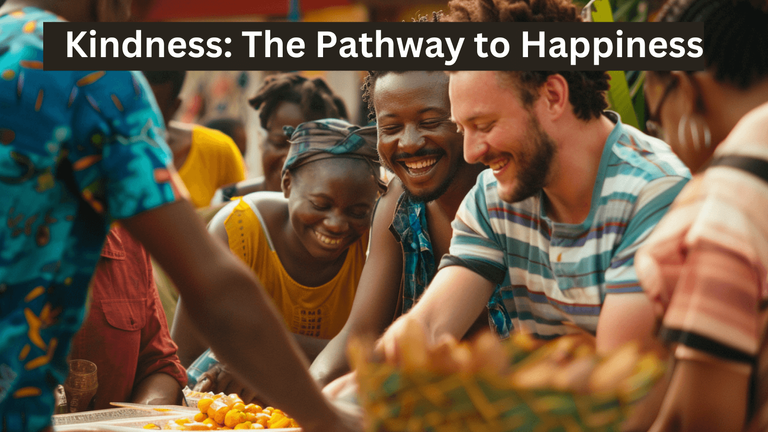
Dr. Oliver Robinson's research emphasizes the transformative impact of kindness on cognitive functions. His study with older adults showed that practicing compassionate acts can greatly improve hippocampus functionality, indicating promising possibilities for cognitive improvement and emotional health.
Cultivating Kindness: Neural Benefits of Contemplative Practice
Kindness, as suggested by the field of contemplative neuroscience, offers promising benefits for both mental and neural well-being. Research indicates that regular practice of certain forms of meditation focused on kindness can lead to tangible changes in brain function, structure, and behavior.
These findings highlight the potential of cultivating qualities like kindness through contemplative practices to retrain neural pathways in the brain, promoting overall well-being and positive mental health outcomes.
Bottom Line
Kindness is more than just a good quality; it is a powerful tool that can bring positive changes to our lives in various ways. When we choose to act with kindness, we not only shift our perspective but also inspire empathy and compassion around us.
Scientific research has shown that performing random acts of kindness can increase our levels of happiness, highlighting the impact of even the smallest gestures. It is important to also show kindness to ourselves through self-care, positive self-talk, and gratitude.
Nurturing a mindset of kindness benefits not only others but also enhances our own well-being, leading to a more positive and rewarding life for ourselves and those we interact with.
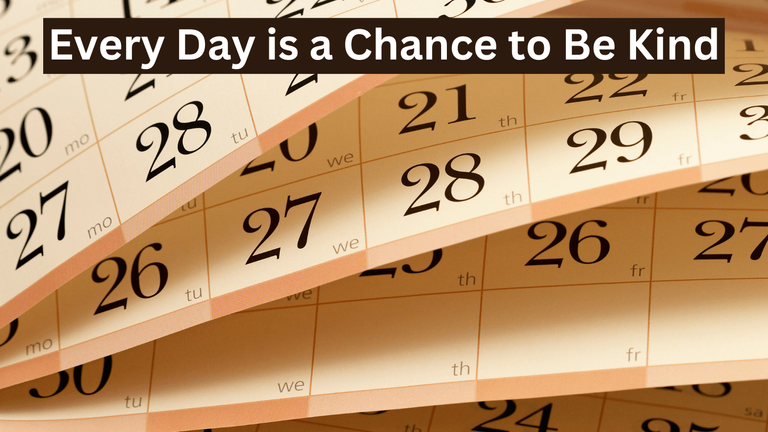
Additional Kindness Challenge Ideas - Choose or Add Your Own
- Print Out / Hand Out “You Matter” Cards
- Do something kind for someone you don't know. It could be something as simple as holding the door open for someone or giving up your seat on the bus. When you do something kind for someone, it not only makes them feel good, but it also releases feel-good hormones in your own brain. These hormones can help to improve your mood, reduce stress, and even boost your immune system.
- Choose to forgive someone who has wronged you.
- Practice daily mindfulness to reduce stress, improve focus, and enhance well-being.
- Remove Any Criticism From Your Life.
- Write Someone an Encouraging Poem
- Wave to a Stranger
- Give your old warm coat or an extra blanket to someone who is homeless.
- Check-in with a friend or family member you haven’t heard from in a while to make sure they’re doing well.
- If you have a favorite restaurant or small business, leave a positive review online to help them.
- Leave a note in your mailbox to thank your mail carrier for their hard work.
- Be kind to yourself.
Some More Ideas for Self Kindness

- Create a Self-Care Routine - Dedicate time each day for personal care.
- Listen to Uplifting Music - Create a playlist of songs that boost your mood.
- Take a Relaxing Bath - Add some Epsom salts, essential oils, or bath bombs.
- Get a Massage - Relax your body and mind with professional massage therapy.
- Practice Deep Breathing - Reduce stress through focused breathing exercises.
- Declutter Your Space - Create a calming and organized environment.
- Drink Plenty of Water - Stay hydrated for physical and mental well-being.
- Take a Nap - Rest when your body needs it.
- Fly a Kite - Relish the simplicity and freedom.
- Reflect on Your Journey - Acknowledge your growth and resilience.
Well that's all for today, come back again tomorrow for another kind fact and challenge.
Remember to be kind to yourself as well as others! 🧡
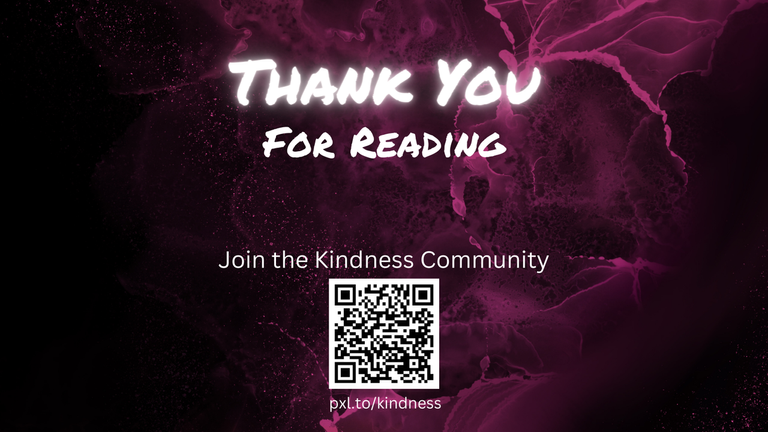
#kindness #cwh #dreemkindness #dreemport #dreemforlife #hivekindness #kindnesschallenge #kindnessmatters #brain #mentalhealth #pob
Images created using Midjourney and Canva. I have a license for both.
Being kind should be something we do spontaneously because the benefits are immeasurable 🥰